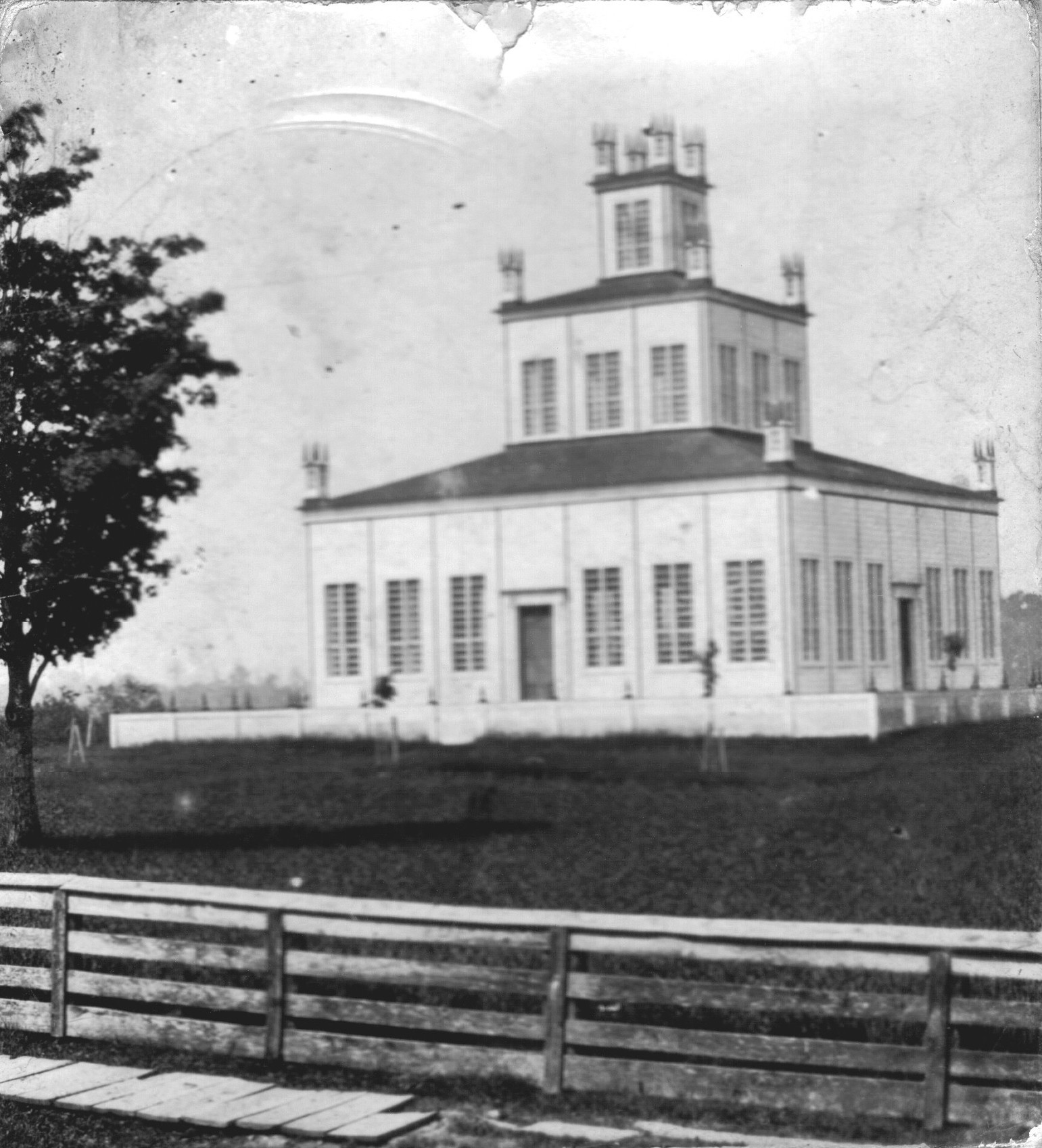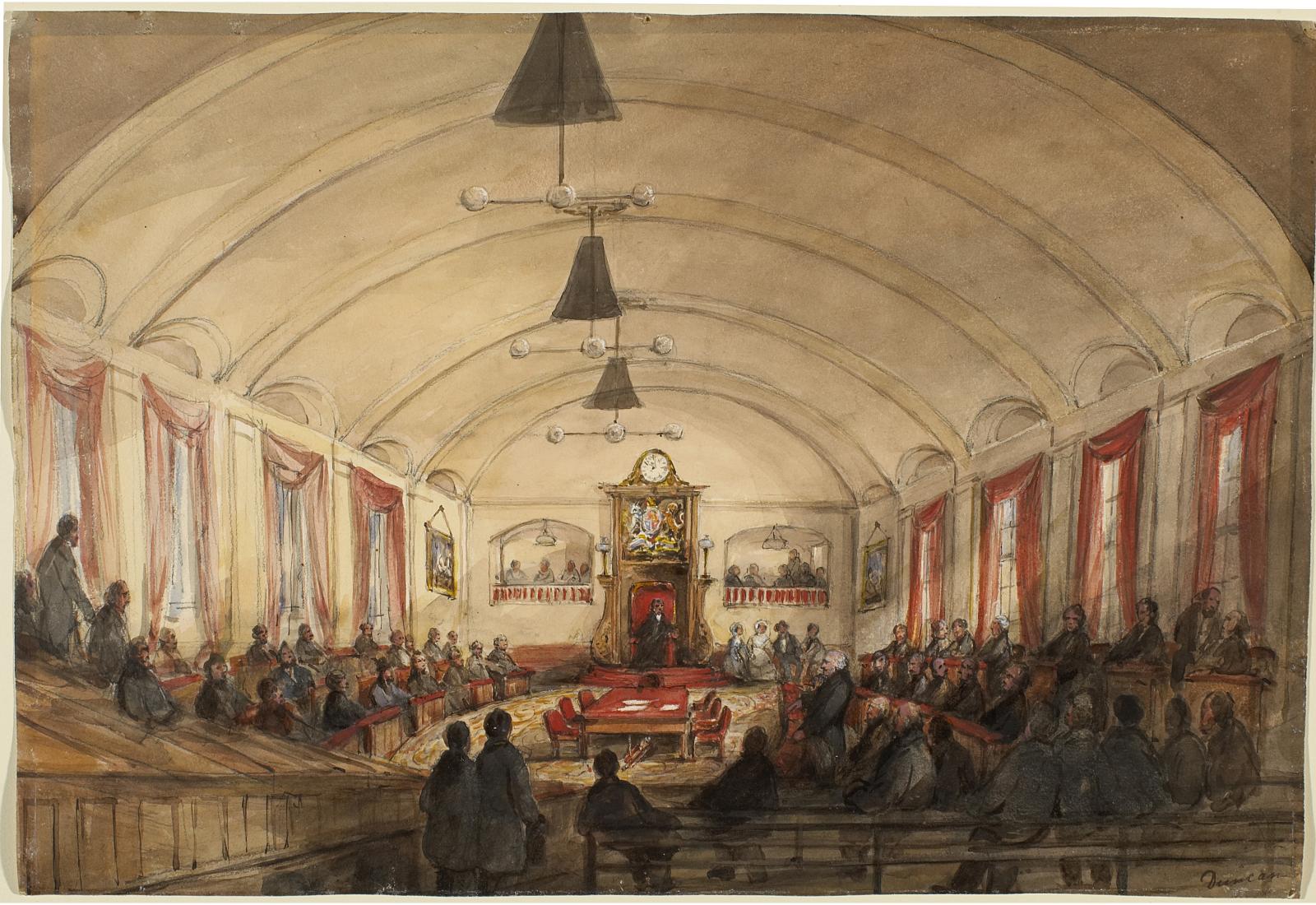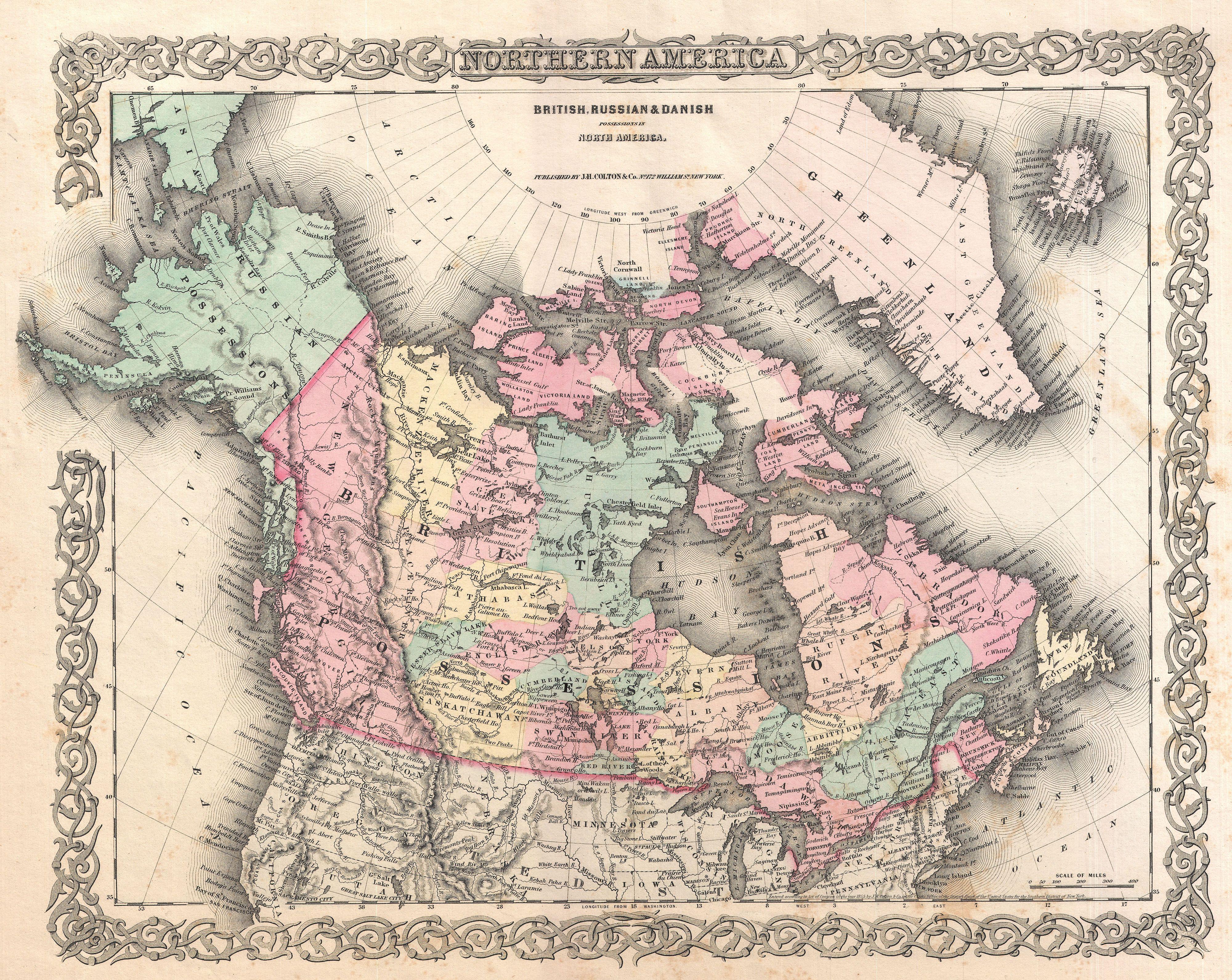|
Robert Baldwin
Robert Baldwin (May 12, 1804 – December 9, 1858) was an Upper Canadian lawyer and politician who with his political partner Louis-Hippolyte Lafontaine of Lower Canada, led the first responsible government ministry in the Province of Canada. "Responsible Government" marked the province's democratic self-government, without a revolution, although not without violence. This achievement also included the introduction of municipal government, the introduction of a modern legal system and the Canadian jury system, and the abolishing of imprisonment for debt. Baldwin is also noted for feuding with the Orange Order and other fraternal societies. The Lafontaine-Baldwin government enacted the Rebellion Losses Bill to compensate Lower Canadians for damages suffered during the Lower Canada Rebellion of 1837–1838. The passage of the Bill outraged Anglo-Canadian Tories in Montreal, resulting in the burning of the Parliament Buildings in Montreal in 1849. Family Robert Baldwin's grandfath ... [...More Info...] [...Related Items...] OR: [Wikipedia] [Google] [Baidu] |
York, Upper Canada
York was a town and second capital of the colony of Upper Canada. It is the predecessor to the Old Toronto, old city of Toronto (1834–1998). It was established in 1793 by Lieutenant-Governor John Graves Simcoe as a "temporary" location for the capital of Upper Canada, while he made plans to build a capital near today's London, Ontario. Simcoe renamed the location York after Prince Frederick, Duke of York and Albany, George III of the United Kingdom, George III's second son. Simcoe gave up his plan to build a capital at London, and York became the permanent capital of Upper Canada on February 1, 1796. That year Simcoe returned to Britain and was temporarily replaced by Peter Russell (politician), Peter Russell. The original townsite was a compact ten blocks near the mouth of the Don River (Ontario), Don River and a Fort York, garrison was built at the channel to Toronto Harbour. Government buildings and a law court were established. Yonge Street was built, connecting York to th ... [...More Info...] [...Related Items...] OR: [Wikipedia] [Google] [Baidu] |
William Warren Baldwin
William Warren Baldwin (April 25, 1775 – January 8, 1844) was a doctor, businessman, lawyer, judge, architect and reform politician in Upper Canada. He, and his son Robert Baldwin, are recognized for having introduced the concept of "responsible government", the principle of cabinet rule on which Canadian democracy is based. Early life William Warren Baldwin was born in County Cork, Ireland in 1775 of Robert Baldwin Sr. William graduated from the medical school at the University of Edinburgh in 1797. Faced with the prospect of the uprising of the Society of United Irishmen in 1798, he came to Upper Canada with his father and family, arriving in July 1799. The family moved to Durham County, where he became a lieutenant-colonel in the Durham militia and a justice of the peace in 1800. William found few patients in Durham, so he moved to the town of York (Toronto) and took up other occupations. In 1803, he was admitted to the bar and, in 1809, he became a district court judg ... [...More Info...] [...Related Items...] OR: [Wikipedia] [Google] [Baidu] |
Burning Of The Parliament Buildings In Montreal
The burning of the Parliament Buildings in Montreal was an important event in pre-Confederation Canadian history and occurred on the night of April 25, 1849, in Montreal, the then-capital of the Province of Canada. It is considered a crucial moment in the development of the Canadian democratic tradition, largely as a consequence of how the matter was dealt with by then co-prime ministers of the united Province of Canada, Sir Louis-Hippolyte Lafontaine and Robert Baldwin. The St. Anne's Market building lodging the Legislative Council and Assembly of Canada was burned down by Tory rioters as a protest against the Rebellion Losses Bill while the members of the Legislative Assembly were sitting in session. There were protests right across British North America. The episode is characterized by divisions in pre-Confederation Canadian society concerning whether Canada was the North American appendage of the British Empire or a nascent sovereign nation. In 1837 and 1838 Canada was h ... [...More Info...] [...Related Items...] OR: [Wikipedia] [Google] [Baidu] |
Lower Canada Rebellion
The Lower Canada Rebellion (french: rébellion du Bas-Canada), commonly referred to as the Patriots' War () in French, is the name given to the armed conflict in 1837–38 between rebels and the colonial government of Lower Canada (now southern Quebec). Together with the simultaneous rebellion in the neighbouring colony of Upper Canada (now southern Ontario), it formed the Rebellions of 1837–38 (). As a result of the rebellions, the Province of Canada was created from the former Lower Canada and Upper Canada. History The rebellion had been preceded by nearly three decades of efforts at political reform in Lower Canada, led from the early 1800s by James Stuart and Louis-Joseph Papineau, who formed the Parti patriote and sought accountability from the elected general assembly and the appointed governor of the colony. After the Constitutional Act 1791, Lower Canada could elect a House of Assembly, which led to the rise of two parties: the English Party and the Canadian Pa ... [...More Info...] [...Related Items...] OR: [Wikipedia] [Google] [Baidu] |
Rebellion Losses Bill
The Rebellion Losses Bill (full name: ''An Act to provide for the Indemnification of Parties in Lower Canada whose Property was destroyed during the Rebellion in the years 1837 and 1838'') was a controversial law enacted by the legislature of the Province of Canada in 1849. Its passage and subsequent royal assent by the Governor General, James Bruce, 8th Earl of Elgin makes the bill a landmark piece of legislation in Canadian political history. The bill was enacted to compensate Lower Canadians who lost property during the Rebellions of 1837 with measures similar to those providing compensation in Upper Canada. Two factors made this measure controversial. Even though participants in the Rebellion could not be compensated with taxpayer's money, sympathy for the Rebellion was more widespread in Lower Canada so that compensation in Lower Canada was seen as "giving money to the rebels". Secondly, the damage done by the army far exceeded the damage done by the rebels, so that enact ... [...More Info...] [...Related Items...] OR: [Wikipedia] [Google] [Baidu] |
Orange Order
The Loyal Orange Institution, commonly known as the Orange Order, is an international Protestant fraternal order based in Northern Ireland and primarily associated with Ulster Protestants, particularly those of Ulster Scots heritage. It also has lodges in England, Scotland and the Republic of Ireland, as well as in parts of the Commonwealth of Nations, Togo and the United States. The Orange Order was founded by Ulster Protestants in County Armagh in 1795, during a period of Protestant–Catholic sectarian conflict, as a fraternity sworn to maintain the Protestant Ascendancy in Ireland. It is headed by the Grand Orange Lodge of Ireland, established in 1798. Its name is a tribute to the Dutch-born Protestant king William of Orange, who defeated Catholic king James II in the Williamite–Jacobite War (16881691). The order is best known for its yearly marches, the biggest of which are held on or around 12 July (The Twelfth), a public holiday in Northern Ireland. The Orange O ... [...More Info...] [...Related Items...] OR: [Wikipedia] [Google] [Baidu] |
Imprisonment For Debt
A debtors' prison is a prison for people who are unable to pay debt. Until the mid-19th century, debtors' prisons (usually similar in form to locked workhouses) were a common way to deal with unpaid debt in Western Europe.Cory, Lucinda"A Historical Perspective on Bankruptcy" , ''On the Docket'', Volume 2, Issue 2, U.S. Bankruptcy Court, District of Rhode Island, April/May/June 2000, retrieved December 20, 2007. Destitute people who were unable to pay a court-ordered judgment would be incarcerated in these prisons until they had worked off their debt via labour or secured outside funds to pay the balance. The product of their labour went towards both the costs of their incarceration and their accrued debt. Increasing access and lenience throughout the history of bankruptcy law have made prison terms for unaggravated indigence obsolete over most of the world. Since the late 20th century, the term ''debtors' prison'' has also sometimes been applied by critics to criminal justice syst ... [...More Info...] [...Related Items...] OR: [Wikipedia] [Google] [Baidu] |
Jury System
A jury trial, or trial by jury, is a legal proceeding in which a jury makes a decision or findings of fact. It is distinguished from a bench trial in which a judge or panel of judges makes all decisions. Jury trials are used in a significant share of serious criminal cases in many but not all common law judicial systems. The majority of common law jurisdictions in Asia (such as Singapore, India, Pakistan and Malaysia) have abolished jury trials on the grounds that juries are susceptible to bias. Juries or lay judges have also been incorporated into the legal systems of many civil law countries for criminal cases. Only the United States makes routine use of jury trials in a wide variety of non-criminal cases. Other common law legal jurisdictions use jury trials only in a very select class of cases that make up a tiny share of the overall civil docket (like malicious prosecution and false imprisonment suits in England and Wales), but true civil jury trials are almost entirely a ... [...More Info...] [...Related Items...] OR: [Wikipedia] [Google] [Baidu] |
Municipal Government
A municipality is usually a single administrative division having corporate status and powers of self-government or jurisdiction as granted by national and regional laws to which it is subordinate. The term ''municipality'' may also mean the governing body of a given municipality. A municipality is a general-purpose administrative subdivision, as opposed to a special-purpose district. The term is derived from French and Latin . The English word ''municipality'' derives from the Latin social contract (derived from a word meaning "duty holders"), referring to the Latin communities that supplied Rome with troops in exchange for their own incorporation into the Roman state (granting Roman citizenship to the inhabitants) while permitting the communities to retain their own local governments (a limited autonomy). A municipality can be any political jurisdiction, from a sovereign state such as the Principality of Monaco, to a small village such as West Hampton Dunes, New York. The ... [...More Info...] [...Related Items...] OR: [Wikipedia] [Google] [Baidu] |
Province Of Canada
The Province of Canada (or the United Province of Canada or the United Canadas) was a British North America, British colony in North America from 1841 to 1867. Its formation reflected recommendations made by John Lambton, 1st Earl of Durham, in the Report on the Affairs of British North America following the Rebellions of 1837–1838. The Act of Union 1840, passed on 23 July 1840 by the British Parliament and proclaimed by the Monarchy of Great Britain, Crown on 10 February 1841, merged the Colonies of Upper Canada and Lower Canada by abolishing their separate parliaments and replacing them with a Parliament of the Province of Canada, single one with two houses, a Legislative Council of the Province of Canada, Legislative Council as the upper chamber and the Legislative Assembly of the Province of Canada, Legislative Assembly as the lower chamber. In the aftermath of the Rebellions of 1837–1838, unification of the two Canadas was driven by two factors. Firstly, Upper Canad ... [...More Info...] [...Related Items...] OR: [Wikipedia] [Google] [Baidu] |
Responsible Government
Responsible government is a conception of a system of government that embodies the principle of parliamentary accountability, the foundation of the Westminster system of parliamentary democracy. Governments (the equivalent of the executive branch) in Westminster democracies are responsible to parliament rather than to the monarch, or, in a colonial context, to the imperial government, and in a republican context, to the president, either in full or in part. If the parliament is bicameral, then the government is responsible first to the parliament's lower house, which is more representative than the upper house, as it usually has more members and they are always directly elected. Responsible government of parliamentary accountability manifests itself in several ways. Ministers account to Parliament for their decisions and for the performance of their departments. This requirement to make announcements and to answer questions in Parliament means that ministers must have the priv ... [...More Info...] [...Related Items...] OR: [Wikipedia] [Google] [Baidu] |
Lower Canada
The Province of Lower Canada (french: province du Bas-Canada) was a British colony on the lower Saint Lawrence River and the shores of the Gulf of Saint Lawrence (1791–1841). It covered the southern portion of the current Province of Quebec and the Labrador region of the current Province of Newfoundland and Labrador (until the Labrador region was transferred to Newfoundland in 1809). Lower Canada consisted of part of the former colony of Canada of New France, conquered by Great Britain in the Seven Years' War ending in 1763 (also called the French and Indian War in the United States). Other parts of New France conquered by Britain became the Colonies of Nova Scotia, New Brunswick, and Prince Edward Island. The Province of Lower Canada was created by the ''Constitutional Act 1791'' from the partition of the British colony of the Province of Quebec (1763–1791) into the Province of Lower Canada and the Province of Upper Canada. The prefix "lower" in its name refers to its geog ... [...More Info...] [...Related Items...] OR: [Wikipedia] [Google] [Baidu] |









